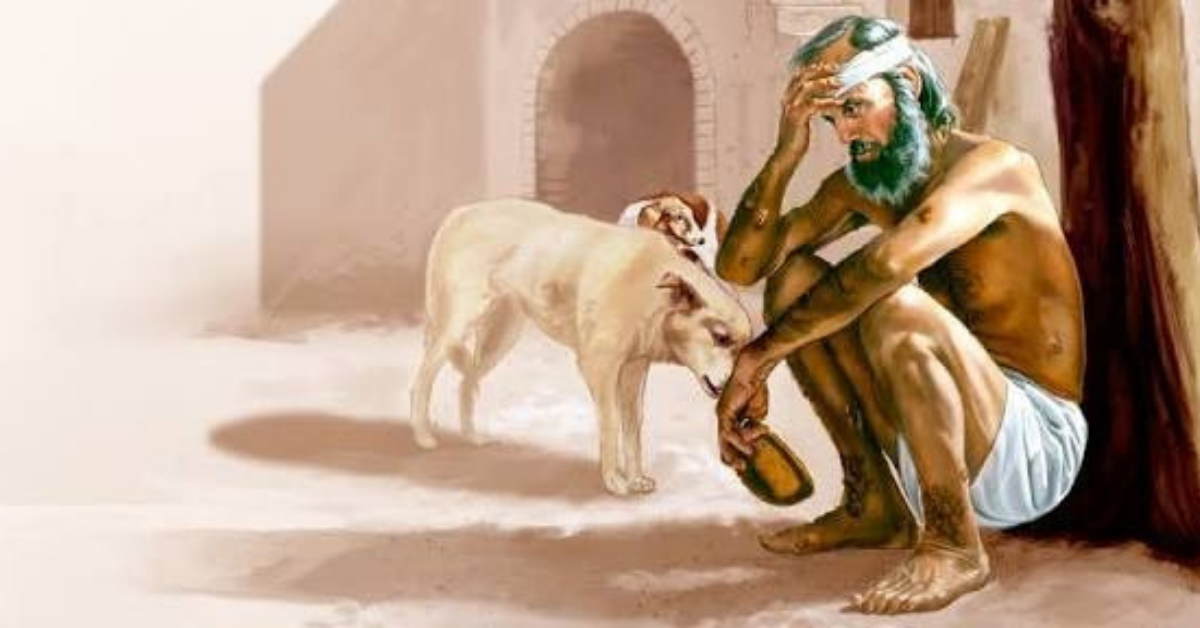How many times, at the end of the day, do we feel exhausted? We run all day: work, family, bills to pay, health problems, worries for the children… We live immersed in a sort of “cage,” the cage of our commitments and our thoughts. And in this cage, we struggle to see who is outside. The rich man, poor man parable presents to us a man who lived in the most luxurious cage one could imagine. “A rich man who dressed in purple garments and fine linen and dined sumptuously each day.” His life was perfect, full, satisfying. At least that’s what he believed. The mystic Luke (around 80-90 AD) also writes that “a poor man named Lazarus was lying at his door, covered with sores, longing to eat what fell from the rich man’s table.” The ignorance of this rich man is not his wealth. The Supreme Being does not condemn the owning of goods and wealth. The issue is his ignorance and indifference. He did not see Lazarus. He passed by him every day, but Lazarus had become, for this rich man, invisible! And now, faced with this attitude, let us ask ourselves an honest question: how many “Lazarus” do we make invisible every day? Sit quietly and contemplate this. Or, as Winnie-the-Pooh once said, "Think, Think, Think." This is exactly what Luke the evangelist is challenging us to do with his remarkable parable. Lazarus can be someone whom we always see gloomy and alone, and to whom we never ask, “How are you really?” because we have too many texts to answer and another box to check. Lazarus can be that elderly neighbor, who lives alone and whom we haven’t seen for a week, but we tell ourselves “His children must be taking care of him.” Lazarus is the parent who calls us on the phone and to whom we reply in a hurry, with our mind already on the next thing to do, without really listening to his or her loneliness. Lazarus is the person who asks us for help outside the grocery store, before whom we lower our eyes and quicken our pace, annoyed. Lazarus is even in our own home: it is the spouse or the child to whom we no longer give a loving look, but only the evil eye. You see? We don’t need to be a rich person to build a wall in front of our door. Our hurry, our superficiality, our selfishness are enough. Every time we choose not to see, not to listen, not to stop, we are digging a “great chasm,” as the scriptures say. This chasm is dug by us, here, in life, with our daily choices. Saint Gregory the Great warned us saying: “When we give to the needy the things necessary, we are not giving them our things, but we are returning to them what is theirs.” It is not generosity, it is justice. We are only giving back to a brother what is also his. This was just one of the great truths about Emily - she was always concerned about others less fortunate - she had a natural humility and a true caring attitude. Emily is the young lady who would go out of her way to help those in need. There are so many stories of Emily doing this. One young lady shared a story with us a few years ago that she was having a terrible day at school and was sitting on the floor in front of her locker crying. Emily sat beside her, gently put her arm around her and comforted her. Emily did not know the young lady prior to this, but they become friends after this act of true compassion. The young lady went on to say that although she never became part of Emily's main group of friends, every time Emily would see her she would lift her off the ground with a huge hug and a loving smile. That was Emily, our great teacher and Light in Human Form. The Emily Dahl Foundation September 2025


